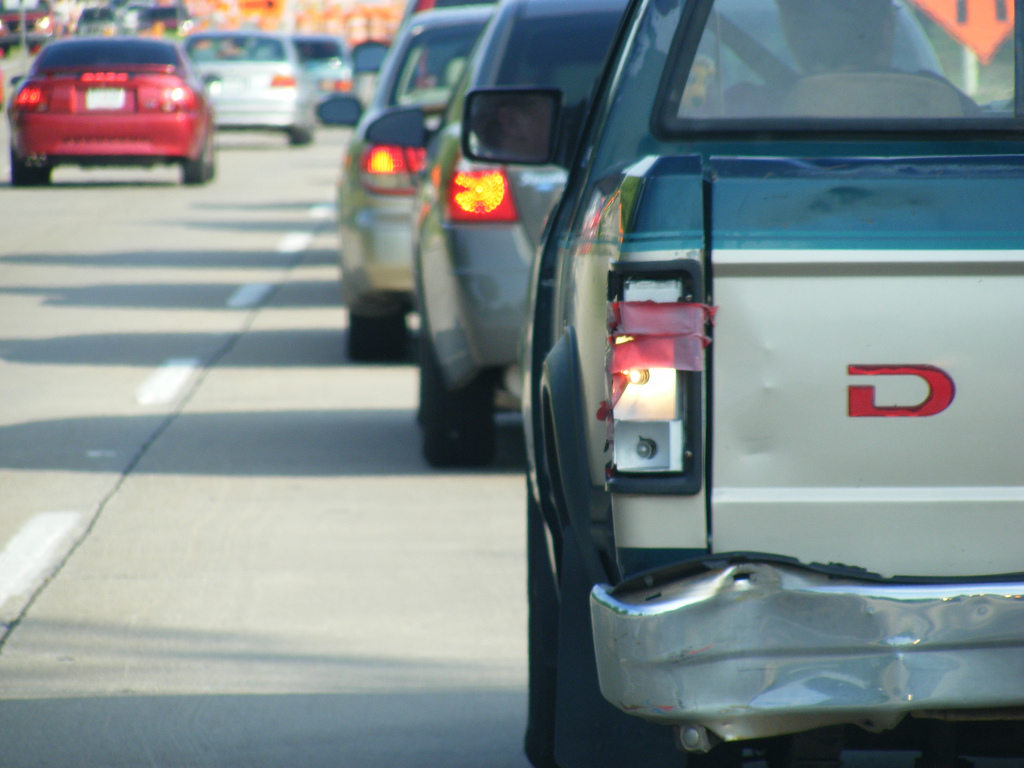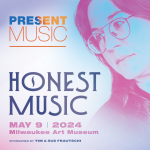How Wisconsin Punishes the Poor
National Public Radio reports how poor people who can’t pay fines lose their drivers licenses.
A two-part series by National Public Radio uses Wisconsin as the poster-child for unjust treatment of low-income, mostly minority citizens, who can lose their drivers licenses for failure to pay a fine.
These reasons can include unpaid traffic tickets, bouncing checks; or minor juvenile offenses like missing school, using false identification to buy alcohol, or shoplifting.
“Increasingly, people who study driver safety say this makes little sense, NPR reports. One national study raised concerns that “police and state and local motor vehicle officials find too much of their time and budget tied up going after people with suspensions for minor lawbreaking that has nothing to do with safe driving,” the series reports.
“If you get caught drinking and driving in Wisconsin, and it’s your first offense, you lose your license for nine months, the story goes on. “For a hit and run, the punishment is suspension for one year.
“It’s an incredible policy,” John Pawasarat told NPR, “a policy of punishing people who can’t pay their fines.” Pawasarat has done the research for the UW-Milwaukee Policy & Research Institute that has documented the huge number of people who have lost their license for failure to pay fines.
In metro-area Milwaukee, with its lack of transit connections to suburban jobs, this has become a huge barrier to getting employed. “Two out of three African-American men in this neighborhood, of working age, don’t have a driver’s license,” Pawasarat told NPR, while walking down Martin Luther King Avenue in Milwaukee. “And are consequently unable to access the jobs that are beyond the bus lines.”
Robert Eger, who did the 2013 study for the American Association of Motor Vehicle Administrators that raised concerns about this policy, found that at least 18 states will suspend someone’s driver’s license for failure to pay the fines on nondriving traffic violations. “And four states will suspend it for not paying parking tickets,” the series noted. “Among the other reasons: school truancy, bouncing a check, not paying college loans, graffiti and littering.”
The first story gives a look at the problem nationally, with considerable attention to the work of former Milwaukee Municipal Court judge Jim Gramling to find solutions to the problem. Gramling helped found the Center for Driver’s License Recovery and Employability, an organization that gives legal help to low income people facing this problem.
The second story focused on McArthur Edwards, a 29-year-old, African American in Milwaukee with four children who lacks a drivers license due to fines he owed that quickly multiplied after he was ticketed and fined for driving with a broken light over his back license plate.
“The most common way that people lose their driver’s license in Wisconsin is not for drunk driving or other unsafe driving,” the story notes. “It’s for failure to pay the fine on a ticket for a non-moving traffic offense. Those make up 56 percent of all license suspensions in the state, according to statistics from the Wisconsin Department of Transportation.”
While some defend the need to have consequences for those who don’t pay fines on tickets, others question whether suspending a drivers license makes sense as a punishment.
It should be noted that Wisconsin’s policy goes back many years and has had bipartisan support, not to mention support from city leaders who use the threat of a driver’s license suspension to collect on unpaid municipal tickets. Is this revenue for the city worth the toll it takes on mostly minority, low income people lacking jobs?
When asked by Urban Milwaukee for solutions Pawasarat offered this response:
“Two steps could be taken immediately.
(1) The state should reinstate state aids for driver’s education in the high schools using DOT funds. (Wisconsin stopped funding driver’s education in 2004.)
(2) The Mayor and Common Council should cease the policy of taking away driver’s licenses from residents with unpaid municipal tickets. Using the driver’s license as a revenue collection tool has very negative impacts on the ability of low-income workers to obtain and hold jobs.
We have a report on the ‘failure to pay forfeiture’ suspension policies here.”
Longer-term, the state legislature could look at reforms that would reduce the use of driver’s license suspensions for non-driving offenses. While there has been discussion of this by the legislature, no action has been taken. If you want citizens to get jobs and become less reliant on government assistance the answer is to make it easier to get a job.
If you think stories like this are important, become a member of Urban Milwaukee and help support real, independent journalism. Plus you get some cool added benefits.
The Press
-
A New State “Progressive” Publication
 Jul 16th, 2019 by Bruce Murphy
Jul 16th, 2019 by Bruce Murphy
-
Journal Sentinel’s Post-Gannett Decline
 Nov 21st, 2017 by Bruce Murphy
Nov 21st, 2017 by Bruce Murphy
-
The Legacy of Eric Von
 Jun 23rd, 2017 by Amanda Maniscalco
Jun 23rd, 2017 by Amanda Maniscalco


















And sadly we’re not the only state that punishes the poor. There was a great albeit depressing story in The Washington Post about this recently, regarding the way St. Louis County, Missouri “profits from poverty.” Defense attorneys dub the offenses “poverty violations.”
http://www.washingtonpost.com/news/the-watch/wp/2014/09/03/how-st-louis-county-missouri-profits-from-poverty/
I would like citizens to feel compelled to pay their fines and not laugh them off, throw them out and continue on their path of delinquency without regard for the law. While I agree that some of the forfeiture rules are imbalanced, I didn’t notice anywhere in your article where you suggest a better alternative. Without that it’s simply a whine session.
If you can’t pay your fines, you probably can’t afford to drive anyways. Maybe these people should just get jobs and pay up like the rest of us instead of trying to skate by scamming the government and getting away with it for their entire lives. If I don’t pay a ticket, there are consequences. That shouldn’t be any different for poor people.
Many of them have jobs and are not trying to scam anyone Justin. I hope 2015 is a good year for you, and that you learn to be less callous and harsh. You seem awfully cold and narrow-minded.
It may seem harsh, but Justin is partially right. If someone can’t afford a $65 ticket then they probably can’t afford to drive a car. Driving is a privilege, not a right. This is a great example of why a robust mass transit system is extremely important. What this is not, however, is an example of how anyone it putting the screws on the poor. This starts with paying $2 for a light bulb. After that, this is about not paying a $65 fine. That can be a steep price for some, but the courts work with people to do payment plans or replacing fines with community service. I did it myself when I was younger.
Yes, the situation above is especially hard for someone who does not have much disposable income. However, it does not remove ones personal responsibility.
You guys are resorting to broad generalizations and acting as if every person is in the same situation. You see everything in black and white. You are obtuse. Some of the tickets are for way more than $65. Some of those towns in the Wash Post story get 40% of their revenue from petty fines and fees. They have a huge incentive to ticket people as much as possible and bleed them dry.
PMD, it’s great that you want everyone to be able to afford a car. I wish you luck in your endeavor. However, there are indeed certain costs that come with owning a car. Proper maintenance, including emissions, proper lighting, safety equipment, insurance, gas, etc are all part of the costs. Not everyone can afford it. That’s where the earlier comments come from. If everyone could afford a car or we found a government program to make it happen, then I guess we could completely eliminate mass transit?
Regardless, people have a responsibility to follow the laws and rules, most are there for very good reasons. What other way do you see to enforce these laws?
By the way, your over “40%” figure stems from a town that had authorities breaking the law in order to ramp up fines. I don’t think anyone here supports that.
I never said I want everyone to have a car. Please don’t put words in my mouth. I’m sure you can make your points without resorting to making things up.
Interesting to see so much support for government actions here from conservatives.
Yeah apparently when it comes to punishing the poor the government isn’t nearly big enough and can do no wrong.
It’s like personal responsibility is anathema to some people around here. People of all economic levels need to make sure their lights are working, they park in a legal space, they pay their registration, not speed, etc. Does anyone have a better way to enforce that besides fines?
Why do i see a trend lately on this site that is always blaming “the man” for problems that ultimately were caused or facilitated by the supposed victim? The cops don’t make people burn out their tail lights, speed, or skip court because they didn’t think they could pay.
Ugh. Such a tired argument. Pointing out that some municipalities profit from poverty does not make someone against personal responsibility. Again with the obtuseness.
If this was about earning a buck off of the poor we wouldn’t see payment plans, alternative punishments, community service options, occupational licenses, and funding for a broad array of social programs set up to help people with these situations.
“ArchCity Defenders found a large group of people outside the courthouse in Bel-Ridge who had been fined for not subscribing to the town’s only approved garbage collection service. They hadn’t been fined for having trash on their property, only for not paying for the only legal method the town had designated for disposing of trash.”
If that isn’t trying to earn a buck off of the poor, I don’t know what is.
It is not a tired argument, you just don’t seem to understand that these fines are generated by people who could have easily avoided any ticket if they just made sure their vehicle was legal for the roads and follow traffic laws. Conservatives who support upholding our laws are for larger government?? I will use your word of the day and call such a foolish statement obtuse. Where are your solutions to making sure people pay their fines?
If you have your license suspended, and you don’t have a passport, do you therefore lose your right to vote? (Is a suspended license valid for voter ID purposes?)
Why not seek alternative punishment besides fines? What about community service?
It’s an incredibly tired argument. It’s like a tic for conservatives. When in doubt just shout “personal responsibility.” And the fact that the right-wingers here keep repeating it while insisting that it’s a case of freeloaders trying to avoid paying fines means they just don’t get it. It’s not just a matter of fines, and they aren’t limited to vehicle-related fines. It’s the amount of the fines. It’s the frequency of the fines. It’s the reasons for the fines. It’s the fact that these municipalities have a huge incentive to keep issuing the fines. People are being fined for “saggy pants” or vague infractions like “affray.” Have you ever been fined for such things? I seriously doubt it.
Don’t break the law, you won’t get the fines. The left holds very low expectations of “low income” people mostly because of their paternalistic racist views but those of us in the real world (including most “low income” people) avoid the problems noted in the article by following SOCIETY’S laws. I’m sure the excuse makers will take my view to task but I’d be willing to bet that more “low income” people would agree with me than with them.
@ PMD….Did you just say people are being fined for “saggy pants”? Are you serious? Way to lose whatever credibility you had left, if any.
When the Walker administration eliminates Wisconsin Public Radio we won’t be burdened by stories like this!
PMD, please show me how many people have lost their license in Wisconsin from a fine for saggy pants. I will walk lock step with you to voice opposition to that.
I’m not sure what your issue with “affray” is… While I don’t think we in Wisconsin explicitly have laws/fines called literally affray, I think it just falls under tickets for disorderly conduct or assault. Should we not cite people for fighting and assaulting people? I doubt that’s what you’re saying.
I get it, it feels like municipalities fine the heck out of people and it can also feel burdensome dealing with that, especially if you’re poor. That doesn’t remove ones responsibility in the community. Please explain why lower income residents should get free passes on the laws and statutes.
If anyone has been on positioned on the lower economic scale, they are living on the fringe scraping by in life. If they can afford a car, it is usually one that is ten or more years in age and needs thousands of dollars in repairs. They generally live in older housing that is in dire need of thousands of dollars in upgrades and cost twice or more to heat in winter. Jobs are scarce in this neighborhood with the number one business locally, a corner tavern or store. Manufacturing labor jobs have left Wisconsin by the thousands, and millions across the USA, and have not been replaced with an equivalent quality position. Transit to available jobs like a Walmart are located greater distances away. Some open jobs cannot be reached by today’s transit system. The majority of jobs are service sector related and this is a dead end path.
The urban system today is not the same as the one of 50 years ago. We have been in a system of contraction for decades and few politicians and leaders have answers. Business leaders continue to rape the golden goose, sell crap from China, and corrupt the political system in their favor. The goose is almost dead, and the floggings continue.
@ Justin. Not in Wisconsin. In St. Louis County, Missouri. Hopefully that restores a little credibility as your opinion of me keeps me up at night.
That isn’t what I am saying Andy. Thank you for not making assumptions. Much appreciated. I knew you could do it.
PMD, you didn’t explain what we should do instead of fining people for fighting/assulting others. Do we have them serve jail time? Do we have them do community service? (both are already options though…)
There are so many ways that people can work within the system if they can’t afford their fines. If you think there’s anything additional that can be done, please elaborate instead of spouting personal insults.
@PMD…The article is about Wisconsin punishing the poor, not Missouri.
I did not say we shouldn’t fine people for assault.
I realize Bruce’s story is about Wisconsin. I have been making reference to St. Louis County, Missouri as well as a place that punishes the poor for poverty violations.
RE: Wisconsin, I have no idea if someone has lost their driver’s license for 2 years for an unpaid broken tail light ticket, but that would be insane. Why is the penalty for an unpaid ticket harsher than the penalty for first-offense drunk driving? That also seems insane. An unpaid ticket should not cause someone to lose their license, unless it’s gone unpaid for a significant period of time and the person had the means to pay it. A suspended license over a single unpaid ticket does not seem like fair punishment.
@PMD
So what is the alternative? Many of these fines are not for moving violations (which should be better enforced anyways) but for assault, tresspassing or disorderly conduct. There needs to be a consequence for poor behavior?
Before you ask me for stats to back up my claim I don’t have any…it’s just anecdotal from my own experiences from having my DL suspended when younger. I can honestly say having my DL suspended really did help me. Did I still drive to work? Yes, I was just a whole lot more cautious to make sure I wouldn’t get pulled over. It also helped to think before I act (not always successfully) which in turn allowed me to form a more stable life. At the same time I believe during that time I became an urbanist. I began to appreciate the need for good transit and better infrastructure that allowed people to bike or walk safely. By giving people a pass on their suspended DLs would just be another way that this system subsidizes (sp) road building, jobs moving to the burbs and the auto.
@Casey People should be punished for assault and disorderly contact. I never said otherwise.
Okay, I’ll chime in to nitpick since PMD seems stuck in his denial.
Affray: Noun: an instance of fighting in a public place that disturbs the peace.
PMD – “People are being fined for “saggy pants” or vague infractions like “affray.” Have you ever been fined for such things? I seriously doubt it.”
If your point was merely that you doubt the commentors on this site probably haven’t committed assault in an area where the law defines affray, then you weren’t very clear. It came across as you thinking that affray is a silly trumped up charge.
Kyle I knew I could count on you. You’re right, I was vague there. I was referring to the St. Louis County, Missouri story in the Washington Post, which claims that people in municipalities there are being fined for saggy pants. In addition, there is a belief there that police write tickets unnecessarily and state it’s for something like “affray.” Sorry if that was not clear. Clearer now Kyle?
I am shocked as a Wisconsin judge that Mr. Shapiro apparently never verified the information he was given. His stories are fraught with misinformation. In Wisconsin, when a person is found guilty and fined (technically a civil forfeiture in most traffic and all ordinance cases) a person is given time to pay. An alternative to nonpayment — license suspension or jail time — is given. But an indigent person can ask for a payment plan, extension of time to pay, a reduction in the amount due — or all of that — in addition to a community service alternative. We do NOT suspend or jail people who cannot afford to pay. Plus, any action taken can be stayed upon a request for an indigence review. Anyone receiving any form of assistance, including medical assistance, is automatically found indigent as a matter of law. Wisconsin law contains many safeguards and alternatives which were not mentioned in Shapiro’s stories. The example of the 16-year-old who said she went to court and didn’t know she owed a fine is bizarre, for example. If she appeared and was found guilty, the sentence would have been explained and she would have been given a chance to be heard. She also would have been given a “fine due” slip. If she failed to appear in court, then a default judgment could have been taken but even then a bill would have been sent to her and she would have been given time to pay as a routine matter. Plus, even if she learned of the suspension later, it could be stayed. Each week I tell defendants “we will try to work with you if you work with us.” But far too many defendants choose to avoid appearing in court, avoid paying their fines and avoid taking advantage of the safeguards the law provides. Here’s one such example: a woman asked for additional time to pay traffic tickets. I gave her an alternative of performing community service and extended twice the deadline for completing it. She blew it off. I summoned her in for a review hearing. She asked for another extension but while pleading poverty we saw that she had new “tats” and was shown on her Facebook page drinking. Instead of jailing her on the spot I gave her another option: either report for the community service work crew program or jail by the following Monday. She was given a work crew assignment of washing dishes at the soup kitchen — volunteer work, by the way, many people do who aren’t indigent — and she refused the alternative so she spent, I believe, three days in jail. (I didn’t suspend her license because she didn’t have a valid license to suspend.) The good news: a few months later she was ticketed again for driving after suspension but she worked hard and was proud to show me a valid license when she came to court. I dismissed the citation in recognition of the good faith and diligence that she showed which was lacking in the past. Mr. Shapiro’s reporting was incomplete and misleading,
PMD, you infer that we should not fine people for disorderly conduct and assault when you said the “affray” fine was unfair. That’s what affray is… assault or disorderly conduct.
To quote your post, “An unpaid ticket should not cause someone to lose their license, unless it’s gone unpaid for a significant period of time and the person had the means to pay it. A suspended license over a single unpaid ticket does not seem like fair punishment.” That is exactly the system we have in place. You must be delinquent for a certain period of time (depending on municipality. Further, if you show financial hardship to the court they will work with you through myriad of programs, payment options, or alternative punishment if applicable.
So really, you have been a supporter of our system the whole time. You just didn’t know it.
@ AG Didn’t someone in the NPR story have their license suspended over one unpaid ticket?
A two-year license suspension was given over a $64 ticket for a broken light over the license plate, according to the story. That seems a bit excessive.
Half the conversation seemed to be about whether you support fighting in the streets, so it seemed best to clarify.
For what it’s worth, I generally agree that too many laws aggressively fine the poor, and that the punishments for unpaid fines is harsh compared to some other offenses. I happen to particularly dislike Milwaukee’s unposted alternate side street parking rules, as it seems impossible to comply with flawlessly. But this is a legislative issue basically. Officers still need to enforce the law, and residents still need to follow it. Until the laws and ordinances are changed, people need to follow them (and they’ll need to follow whatever replaces them too). As for any immediate action, it would be nice if the alternative payment methods and punishments were provided along with the tickets/citations. Not everyone has internet access at home, or time to get to the public library to research their options.
Yes let me clarify once and for all I do not support fighting in the streets.
Well-said Kyle. And taking a day off work with no pay to fight a ticket is also a burden, in addition to the lack of Internet access.
@PMD so what type of crimes/behaviour should people not receive fines for?
Also the $64 ticket turning into a 2 year suspensions seems like there is a whole lot of the story that is being left out. Would be interesting to do a wcca search of the person to get a more complete story or even nicer if the “journalist” would’ve done that.
PMD, please see judge Ginkowski’s description above. I’ve had very similar experiences myself as a poor college student (I realize a poor college student is not the same as a poor single mother of 3… but none the less I did not have the ability to pay).
Also to clarify, it’s a two year suspension only if you don’t pay the fine. If you get the suspension, but clear up the ticket the next day, you can get your license reinstated as soon as the payment clears.
I read it AG. And I’ve been in a position (sans children or other family members) where $64 was a hell of a lot of money. However long he had to pay, suspending someone’s license for 2 years over that seems excessive.
No point in arguing over this anyways, I’m sure Obama will exercise some sort of executive action before he is finally out of office and start paying minorities fines so they don’t get in too much trouble. I mean they get everything else payed for/handed to them anyways, why not?
Holy racist Justin. Yikes. That mindset is straight out of 1950. Go back to watching FNC.
I actually listened to this radio program the other day. What the actual radio program offered, that this article did not, was other options to pay the fines like community service. The radio program did not assume poor people should not be fined at all – instead, they should be offered other ways to pay the fine. With that said, these are non-moving violations, like parking tickets. To lose a license over a non-moving violation, could render a person unable to drive to a job (because mass transit now sucks for Milwaukeeans), which then means no income. What happens to folks who can’t drive and are unemployed? They require public assistance. SO, wouldn’t it behoove Milwaukee to offer alternative ways to pay a NON-MOVING violation – knowing very well it will reduce the need for public assistance?
CJ is correct…there wasn’t an assumption that the offenders’ actions were to be waived. Former Judge Jim Gramling is a stellar example of someone who cares about the community and gives back, unlike others who continually chastise and dictate from on high, or from the burbs.
How is that racist PMD?
Minorities get everything either handed to them or paid for. How is that racist? You really need to ask? There’s no hope then.
Justin – define to us your demographic of “Minority” and then ask if your comments are still racist. The issue is not someone’s skin color that affects their ability to pay fines. Grouping all “Minorities” into a comment where they “get everything paid…” is not only ignorant, but definitely a bigoted comment. Have you ignored the fact that the NPR radio program was NOT suggesting anyone get away without paying the fines? Rather, a different means of paying those fines are more in line with the folks who are actually getting the fines. If you did not ignore that fact, then why are you referring to Minorities getting everything paid (remember the fact I JUST mentioned?)? I realize most bigots speak before they fully understand the issue at hand, but I want you to explain to us why you linked all minorities to getting everything paid based on the facts of this issue if you aren’t being a closeted bigot and racist? I can listen to anyone’s opinion on most issues with an open mind, but I take great pride in exposing creeps like yourself who hide behind their computers because they know THEY are becoming the minority – bigots and racists are dwindling.
Justin A, it’s ridiculous comments like that which make it difficult to have actual conversations about these issues. I hope you were just trying to rile them up and do not actually believe what you typed.
Here’s an idea that will never get any traction. How about make it income based with a set minimum that way law breakers all suffer the same financial burden?
I remember a family friend who was relatively well off that had no qualms about speeding because the $30 ticket (at the time) didn’t mean much to him so it never had the intended effect of dissuading his poor and dangerous behavior.
All the courts would have to do is work with either DWD and/or SSI administration IRS to verify the person’s earnings.
PMD/CJ…Want me to really throw a curveball at you? My dad is black.
@Justin And? That only makes your racist comment more puzzling and disappointing. It certainly doesn’t mean your comment wasn’t racist. It was.
@Casey Similar to garnishing the wages of a deadbeat dad?
@PMD something similar but hopefully would be more streamlined. I know I know….govmnt and efficiency doesn’t go hand and hand. 🙂
Amusing. I wonder if the same posters who scream personal responsibility, “if you can’t afford the fines, don’t drive”, and “driving is a privilege” also oppose every single major attempt to increase transit coverage in the city and the region such as the regional transit options (extension of METRA to Milwaukee for example), increases in bus funding and the “choo choo train” (as if they are still in kindergarten). I would guess that it’s a large portion
TC, personal responsibility is an apolitical ideal. That’s like saying people who believe in good morals must be against mass transit.
As a side note, to speak for myself, I support a robust metro area transit system and contact my representatives often to push them to support mass transit legislation as it comes up.
Pretty crazy that the guy couldn’t afford a several dollar light bulb for his rear license plate and amassed $1,800 in fines. I bet he got a one or more fix-it warnings too.
Should the lack of a light bulb over your rear license plate ever result in $1,800 in fines?
It was not $1800 for a broken tail light, it was for that ticket plus 6 more, plus failure to pay fines, etc. It wasn’t one mistake, it was a long pattern of poor decisions.
@PMD So should the law change so it is no longer required to have our license plate lit?
If so, would that make it harder to ID vehicles and with what consequences? If not, what should the consequence be if the simple and affordable requirement is not met?
@Casey.. Huh? I never said anything about not requiring people to have their license plate lit. I said a fine that large over something like not having a license plate lit seems excessive. Your questions are inane.
Should have shown more personal responsibility AG.
Agreed!
I wish people texting and driving were ticketed as aggressively as people with a light out over their rear license plate, but I guess the latter is easier for officers to spot.
@PMD I’m sorry if you think the questions are inane. This for the most part has been constructive.
The ticket for the light was not $1,800 but things escalated starting with the $1,800 ticket. So how to we address the root cause of the $1,800 in total fines?
Indeed it has been Casey, but questions like that detract from it because you bring up something I never suggested.
My apologies if I misunderstood your comment.
But lets stay on how this whole mess for people in general can be avoided (not just this one incident) in the first place.
How do we keep people from finding themselves in a spiral of escalting fines who also are not able to do community service because because of the demands of their full time job and small children.?
And sometimes can’t make it to court because doing so means missing work, and missing a day of work can mean losing your job.
Those participating in this discussion might be interested in an article focusing on this issue locally that was published in Milwaukee Neighborhood News Service:
http://www.milwaukeenns.org/2013/12/02/special-report-mounting-fines-for-minor-infractions-hit-low-income-drivers-hardest/
Well now the last comment, just like many others like it. First off don’t break the law!!! “Can’t make it to court, because might miss wok.” Don’t break the law, won’t have to go to court. Second, you only here of the oh so poor, because they are the ones breaking the law and not paying. Don’t break the law. Just like on my Phone bill I have to pay a % for low income, for phone and energy, If I don’t pay my bill I get shut off!!!!!!! I found away to pay my bills, I’m not rich by no means, but ya know if ya can’t afford it you don’t get it.